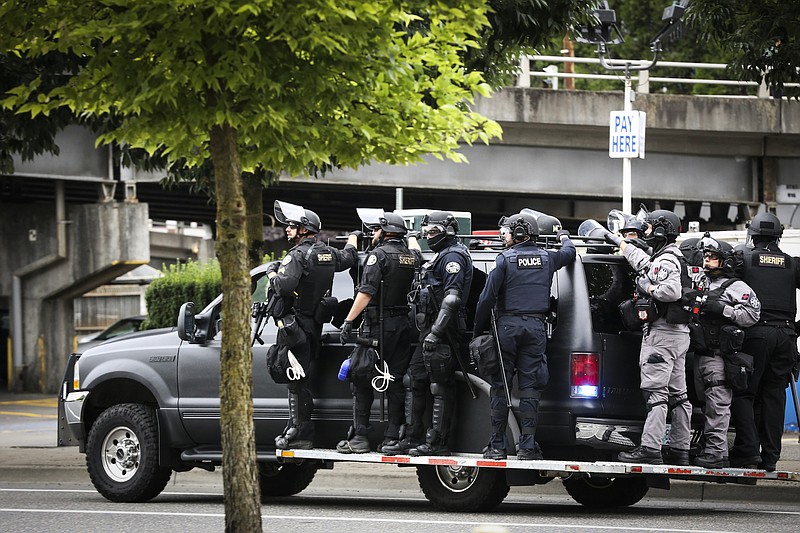As I'm sitting in a doctor's waiting room in Memphis, Tennessee, a television set hanging from the ceiling plays a Fox News program whose host warns of "antifa" heading to a town near me.
But what exactly is antifa? I'm a news junkie, and I barely have a clue.
The word stands for anti-fascist, and it appears to have originated in Germany in the 1930s and then resurfaced again in the 1970s. With the election of President Donald Trump in 2016, small organizations with that name have cropped up in a few American cities. But, for the most part, labeling protesters as members of "antifa" - or, as Trump likes to say, "professional anarchists" - is often either a red herring or a false flag operation used to frighten gullible citizens.
In early June, for example, a fake Twitter account pretending to be from "antifa" called for violence. It turned out to be a scam orchestrated by white nationalists.
"Antifa," as a code word used to rile up fear and paranoia, has been lobbed especially at Black Lives Matter activists. Trump and Attorney General William Barr have repeatedly said that demonstrators leading the protests for racial justice are antifa, even though independent analyses of federal arrests of protesters by National Public Radio and The New York Times don't actually show anyone with these connections.
Trump and Fox News are tireless promoters of such scare tactics. On Monday, when the president was interviewed by Fox host Laura Ingraham, he suggested that Democratic nominee Joe Biden's campaign was being run by a secret cabal of "people you've never heard about, people that are in the dark shadows." These menacing insinuations mirror the way the term antifa is used in right-wing media - not with precision or even sincerity, but as an incantation or curse. And they are obsessed with it.
Indeed, Fox News might as well change its name to the Antifa Network, because over the past few years, according to a Lexis-Nexis search conducted in early August, it has broadcast the word 520 times, versus just 24 for CBS, 37 for ABC and 66 for MSNBC. In one July 2019 episode of Laura Ingraham's program alone, she or her guests said the word 59 times.
As the presidential election in November draws near, it's clear that conservatives are using the myth of antifa to pander to their base. But is it working?
To some extent, yes. According to a Rasmussen poll in June, almost half of respondents say antifa should be considered a terrorist organization, even though most of them probably couldn't tell you what it is, stands for, or wants.
Victor Klemperer, a Jewish professor of French literature who survived the Nazi regime, wrote in his book "The Language of the Third Reich" that "a foreign word impresses all the more the less it is understood."
Perhaps that explains the strange buoyancy of "antifa" in right-wing media outlets. But whatever the reason may be for its popularity, the purpose is clear.
"Political language," as George Orwell wrote in 1946, "is designed to make lies sound truthful and murder respectable, and to give an appearance of solidity to pure wind."
In most of the country, antifa is mostly wind. And its hot-air blowers are the kind of demagogues that history knows all too well.
Joseph Hayden, a professor of journalism at the University of Memphis, is writing a book on the recent history of fake news in America.
Tribune Content Agency
